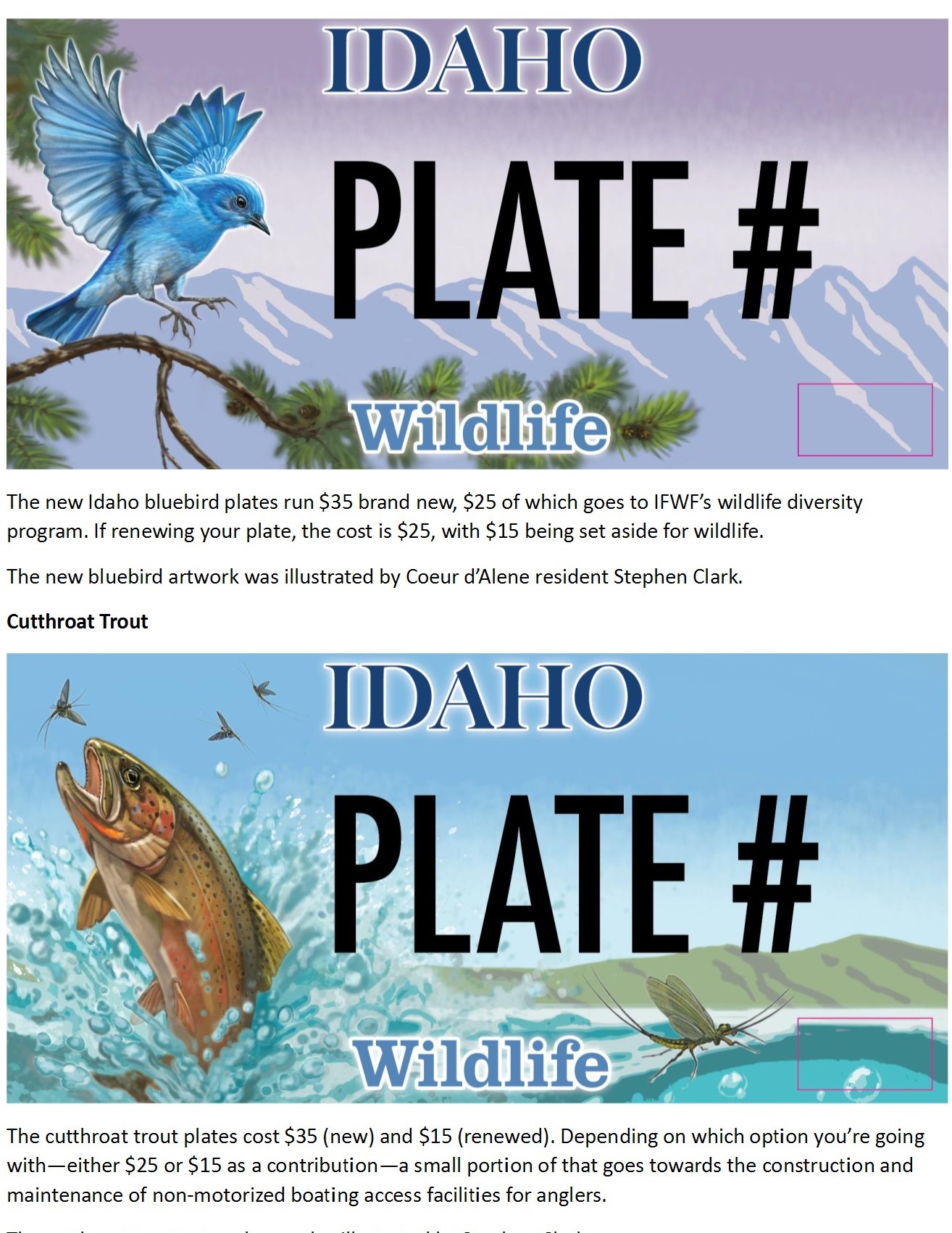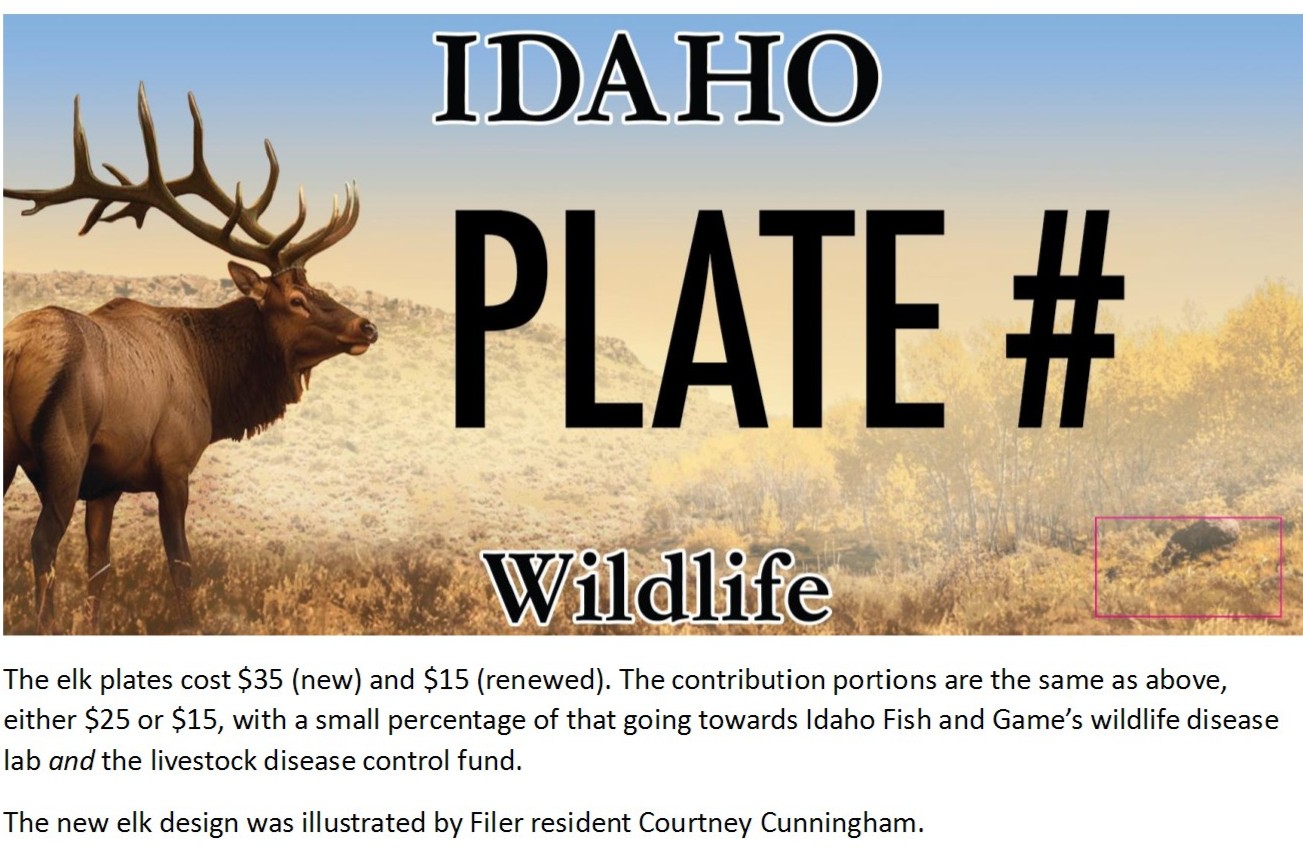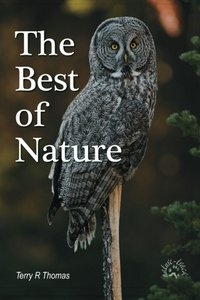Memory

©Terry R. Thomas/www.nature-track.com
After a trip to the gas station, I returned home to change clothes and head out to pick huckleberries. I found my huckleberry bag in the garage and then went inside to change. After emptying my pockets of knife, flashlight, and cell phone, I reached for my wallet—which wasn’t there. I knew I had it at the gas station because I had purchased a soda. But I had also used the bathroom there and this particular pair of pants was notorious for its small unsecure pockets. I called the station, but no one had turned it in. I looked everywhere I could think of, finally concluding that someone must have picked it up in the restroom and taken it.
I was dismayed. Not only was there a lot of cash in the wallet, credit and debit cards, membership cards and driver’s license were all going to have to be cancelled and then renewed, an expensive and irritating process. I even had to wait for Cathy to get home to give me some money because I didn’t have enough for the driver’s license ($20 in Fremont County). In Ashton, I stopped and cancelled my credit card. Literally two minutes later, Cathy called to tell me she had found my wallet, in the garage, on the workbench. To this day, several weeks later, I have zero recollection of stepping even near the workbench and have no idea why I would have removed my wallet.
Memory. It is a great thing to have. Without it we would not be able to develop personal identity, relationships or even language. Losing it is also one of the most frightening things a human can go through because all three of these can unravel as memory fades.
Memory is how your brain processes and stores information so you can access it later and it generally happens in your hippocampus. The hippocampus is an important part of your brain. It is shaped like a seahorse (hence the Latin name for seahorse, hippocampus), is about five centimeters long, and there is one each on the right and left sides of your brain deep within the temporal lobes.
The hippocampus is responsible for learning and for different types of memory. You’ve likely heard about short-term and long-term memories and these are regulated by the hippocampus which also converts short-term memories into long-term ones. However, the hippocampus is likewise responsible for sensory memory (taste, smell, auditory, visual) and “visual-spatial memory (remembering the position of your body in relation to nearby objects), verbal memory (remembering the right words to say), and declarative (or explicit) memory (the recollection of facts or experiences)” ClevelandClinic.org. It specializes in declarative memories—facts and events you can consciously recall, for example, remembering what you had for lunch or the name of a new acquaintance involves hippocampal processing.
The hippocampus, a member of the limbic system, also works in concert with other brain areas. For example it works with the amygdala to connect memories to emotions, which generate an emotional response. It is also responsible for spatial memories, helping us create cognitive maps—mental representations of our environment and even maps of our social lives. These maps enable us to navigate familiar spaces and relationships effectively.
We hear a lot of scary news about diseases that can really mess with memory, such as Alzheimer’s, dementia, epilepsy, and more. However, the good news does not get shared as often. In a study of London taxi drivers, “cabbies” who must learn the complex map of over 60,000 streets of this very confusing city, researchers determined that the size of the hippocampus can increase and the neural connections improve with performance of complex tasks. So, yes, you can improve your memory.
The Mayo Clinic has provided seven ways to improve/protect your memory and your hippocampus.
1. Be physically active every day
Physical activity raises blood flow to the whole body, including the brain. This might help keep your memory sharp.
2. Stay mentally active
Activities that engage your mind help keep your brain in shape. And those activities might help prevent some memory loss. Do crossword puzzles. Read. Play games. Learn to play a musical instrument. Try a new hobby. Volunteer at a local school or with a community group.
3. Spend time with others
Social interaction helps ward off depression and stress. Both of those can contribute to memory loss.
4. Stay organized
You're more likely to forget things if your home is cluttered or your notes are in disarray. Keep track of tasks, appointments and other events in a notebook, calendar or electronic planner. Keep your wallet, keys, glasses and other essential items in a set place in your home so they are easy to find.
Limit distractions. Don't do too many things at once. If you focus on the information that you're trying to remember, you're more likely to recall it later
5. Sleep well
Not getting enough sleep has been linked to memory loss. So has restless sleep and sleep that gets disturbed often. Make getting enough healthy sleep a priority. Adults should sleep 7 to 9 hours a night on a regular basis.
6. Eat a healthy diet
A healthy diet is good for your brain. Eat fruits, vegetables, and whole grains. Choose low-fat protein sources, such as fish, beans and skinless poultry.
7. Manage chronic health problems
Follow your health care provider's advice for dealing with medical conditions, such as high blood pressure, diabetes, depression, hearing loss and obesity. The better you take care of yourself, the better your memory is likely to be.
Next time we’ll dive into animal memory. If I can remember that long.
Help Idaho Wildlife
When we traveled across the state in October 2017, we visited most of the Idaho Department of Fish and Game wildlife management areas. Most of the vehicles we saw using the wildlife management areas did not have wildlife plates. Buying wildlife plates is a great way for non-hunters and hunters alike to support wildlife-based recreation like birding.
C'mon folks, let's help Idaho's wildlife by proudly buying and displaying a wildlife license plate on each of our vehicles!
See below for information on Idaho plates. Most states have wildlife plates so if you live outside Idaho, check with your state's wildlife department or vehicle licensing division for availability of state wildlife plates where you live.
And tell them that you heard about it from Nature-track.com!


Wildlife License Plates
Great news! as of 2024, there are three NEW designs for license plates. They still are bluebird, cutthroat trout and elk, but they are beautiful.
Idaho Wildlife license plates provide essential funding that benefits the great diversity of native plants and wildlife that are not hunted, fished or trapped—over 10,000 species or 98% of Idaho’s species diversity. Game species that share the same habitats (such as elk, deer, antelope, sage-grouse, salmon, trout) also benefit from these specialty plates.
No state tax dollars are provided for wildlife diversity, conservation education and recreation programs. Neither are any revenues from the sale of hunting or fishing licenses spent on nongame species. Instead, these species depend on direct donations, federal grants, fundraising initiatives—and the Idaho Wildlife license plates.
Both my vehicles have Bluebird Plates. I prefer the bluebird because the nongame program gets 70 percent of the money from bluebird plates, but only 60 percent of the money from elk and trout plates - 10 percent of the money from elk plates supports wildlife disease monitoring and testing programs (to benefit the livestock industry) and 10 percent from cutthroat plates supports non-motorized boat access.
Incidentally, in 2014, the Idaho Legislature denied the Department of Fish and Game the ability to add new plates or even to change the name of the elk and cutthroat plates (very specific) to wildlife and fish plates, a move that would have allowed for changing images occasionally and generating more revenue. It would seem that they believe that we Idahoans don't want a well funded wildlife program.
I think it is time we let the Legislature know that Idahoan support wildlife funding and that we would like to see these generic plates come to fruition.

"WOW. What a phenomenal piece you wrote. You are amazing." Jennifer Jackson
That is embarrassing, but actually a fairly typical response to my nature essays. Since The Best of Nature is created from the very best of 16 years of these nature essays published weekly in the Idaho Falls Post Register (online readership 70,000), it is a fine read. It covers a wide variety of topics including humorous glimpses of nature, philosophy, natural history, and conservation. Readers praise the style, breadth of subject matter and my ability to communicate complex and emotional topics in a relaxed and understandable manner.
Everyone can find something to love in this book. From teenagers to octogenarians, from the coffee shop to the school room, these nature essays are widely read and enjoyed.
Some of the essays here are my personal favorites, others seemed to strike a chord with readers. Most have an important message or lesson that will resonate with you. They are written with a goal to simultaneously entertain and educate about the wonderful workings of nature. Some will make you laugh out loud and others will bring a tear to the eye and warm your heart.
Readers Write:
"You hit a home run with your article on, Big Questions in Nature. It should be required reading for everyone who has lost touch with nature...great job!" Joe Chapman
"We enjoyed your column, Bloom Where Planted. Some of the best writing yet. The Post Register is fortunate to have your weekly columns." Lou Griffin.
To read more and to order a copy, click here or get the Kindle version
Copies are also available at:
Post Register
Island Park Builders Supply (upstairs)
Barnes and Noble in Idaho Falls
Harriman State Park, Island Park
Museum of Idaho
Valley Books, Jackson Wyoming
Avocet Corner Bookstore, Bear River National Wildlife Refuge, Brigham City, Utah
Craters of the Moon National Monument Bookstore, Arco, Idaho